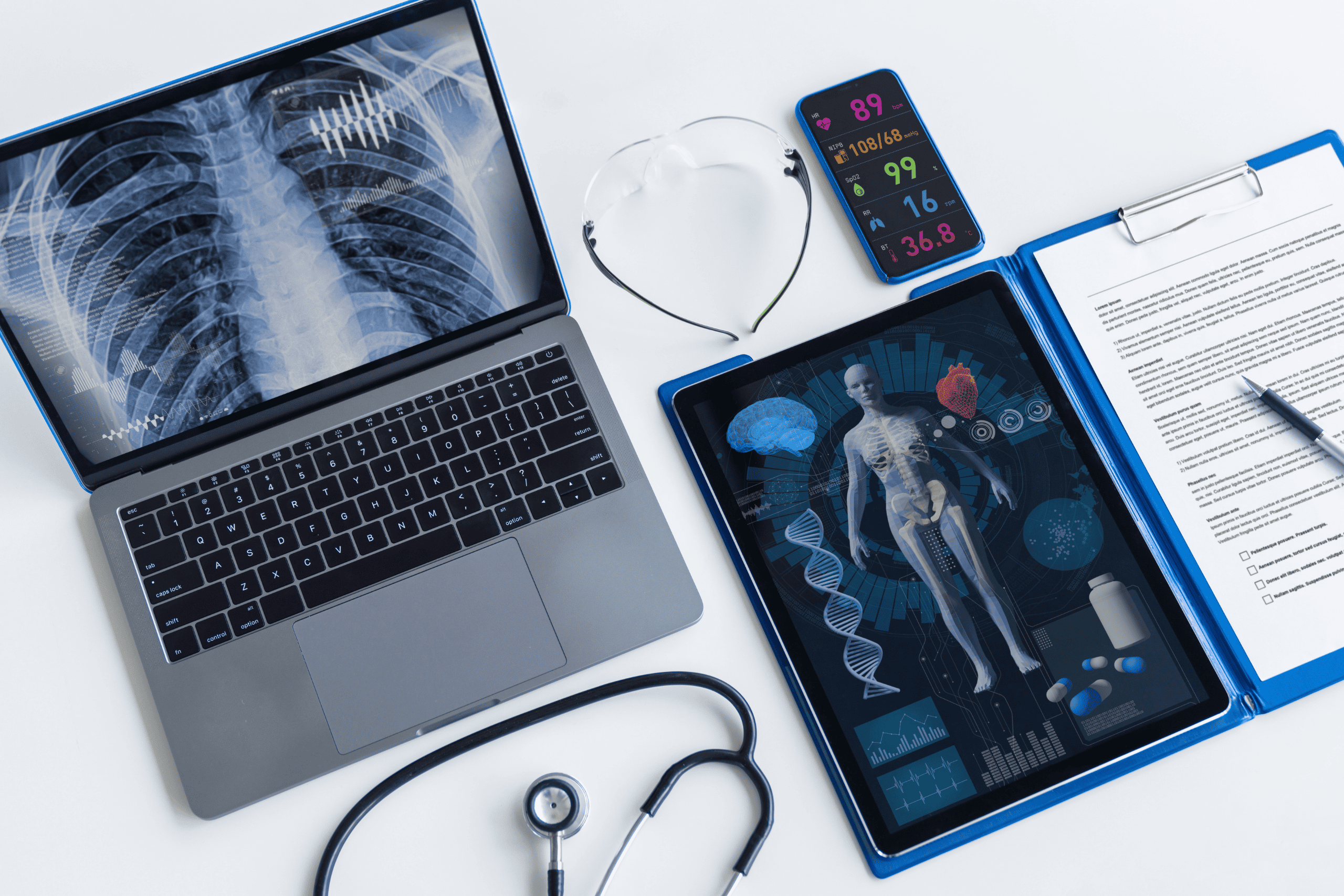
Best Healthcare Jobs for Remote Work in 2025
It’s another holiday again. Last year, during the holidays, I hosted a couple of friends. While sharing stories and experiences over hot cups of chocolate, one of my friends who’s also a mom shared how her life had transformed with her remote healthcare job. After years of juggling long hours and commutes, she found the balance she’d always wanted—working from home, spending more time with her kids, and still making a meaningful impact.
Her story highlighted the growing opportunities for remote work in healthcare, and as 2025 approaches, it’s clear that these roles are changing lives. According to Forbes, the global telehealth market is projected to reach $455.3 billion by 2030, driven by advances in technology and changing workplace dynamics. This shift has opened up diverse opportunities for healthcare professionals to work remotely, blending technology with compassionate care. But what are the best healthcare jobs for remote work in 2025? Let’s explore the roles redefining the future of healthcare.
1. Telehealth Physician
Role Overview
Telehealth physicians provide medical consultations via video or phone calls, diagnosing and treating patients remotely. This role has become essential, particularly in rural or underserved areas where access to healthcare is limited. Remote work potential is very high, as the entire role is based on remote work.
Key Requirements:
- Medical degree and relevant certifications.
- Experience with telemedicine platforms.
- Strong communication and diagnostic skills.
The American Medical Association (AMA) reports a 64% increase in telehealth adoption among physicians since 2020, with many doctors emphasizing improved patient satisfaction. Popular telemedicine platforms like Teladoc Health and Amwell continue to hire licensed physicians for remote roles.
2. Telehealth Nurse
Role Overview
Telehealth nurses, also known as Remote nurses, provide patient support through virtual consultations, follow-up care, assess patient conditions, and provide medical advice. They often work for insurance companies, hospitals, or telehealth providers. Remote work potential is very high, as the entire role is based on remote work.
Key Responsibilities:
- Triaging patient symptoms.
- Offering advice and care plans via phone or video.
- Assisting in remote monitoring of chronic conditions.
A study in The Journal of Nursing Administration highlights that telehealth nursing has enhanced patient outcomes, particularly for managing chronic diseases like diabetes and hypertension. Platforms like Cigna and Aetna frequently recruit remote nurses for flexible opportunities.
3. Medical Coder
Role Overview
Medical coders translate patient records into standardized codes for billing and insurance purposes. This role is ideal for detail-oriented professionals and can be performed entirely remotely. Remote work potential is high, as most of the work involves reviewing medical records and assigning codes, which can be done remotely.
Key Skills Needed:
- Certification in medical coding (e.g., CPC, CCS).
- Familiarity with coding systems like ICD-10 and CPT.
- Knowledge of HIPAA compliance.
According to AHIMA Today, medical coding is one of the fastest-growing remote healthcare careers, with demand expected to increase by 7% through 2030. Companies like UnitedHealth Group and Optum actively seek remote medical coders.
4. Healthcare IT Specialist
Role Overview
Healthcare IT specialists ensure the security and functionality of healthcare information systems. They play a crucial role in maintaining electronic health records (EHRs) and supporting telemedicine infrastructure.
Core Responsibilities:
- Managing EHR systems.
- Enhancing telehealth platform security.
- Troubleshooting technical issues for remote healthcare providers.
The Healthcare Information and Management Systems Society (HIMSS) emphasizes that cybersecurity in healthcare IT is a top priority in 2025. Employers like Epic Systems and Cerner are hiring remote IT specialists to meet growing needs.
5. Medical Transcriptionist
Role Overview
Medical transcriptionists listen to audio recordings of medical reports, such as doctor’s notes and surgical reports, and transcribe them into written documents.
Key Skills:
- Proficiency in SQL, Python, or R.
- Experience with healthcare analytics tools like Tableau or Power BI.
- Knowledge of healthcare regulations (e.g., HIPAA, GDPR).
A report by Modern Healthcare reveals that data analytics roles in healthcare are expanding rapidly, with remote options becoming standard. Companies like Kaiser Permanente and CVS Health often post openings for remote health data analysts.
6. Clinical Research Coordinator
Role Overview
Clinical research coordinators manage trials to evaluate new treatments or medical devices. Many aspects of this role, including patient recruitment and data management, can now be handled remotely.
Responsibilities:
- Ensuring compliance with research protocols.
- Monitoring patient progress virtually.
- Reporting findings to sponsors.
The Clinical Research Forum states that virtual clinical trials, also known as decentralized trials, have increased by 50% since 2022. Organizations like Parexel and PPD are hiring remote coordinators to support these trials.
7. Pharmacist Consultant
Role Overview
Pharmacist consultants work with patients or healthcare providers to optimize medication use. Virtual consultations have made this role accessible remotely.
Primary Duties:
- Reviewing patient medications for safety and efficacy.
- Providing guidance on drug interactions.
- Assisting in medication management for chronic conditions.
According to Pharmacy Times, remote pharmacy roles are particularly beneficial for patients in rural areas, improving access to expert guidance. Employers like CVS and Walgreens offer remote pharmacist opportunities.
8. Mental Health Counselor
Role Overview
Remote mental health counselors provide therapy and support via video calls, online chats, or phone sessions. This role has grown exponentially with increasing awareness of mental health needs.
Key Certifications:
- Licensed Clinical Social Worker (LCSW) or equivalent.
- Training in teletherapy platforms.
- Expertise in CBT, DBT, or other counseling techniques.
The American Psychological Association (APA) notes that teletherapy is as effective as in-person sessions for treating anxiety and depression. Platforms like BetterHelp and Talkspace regularly hire licensed counselors for remote roles.
9. Sales Associate in Healthcare
Role Overview
Sales associates in healthcare work to promote medical products, devices, or pharmaceuticals to healthcare providers, clinics, and hospitals. With advancements in communication tools and CRM platforms, much of this role can now be performed remotely.
Key Responsibilities:
- Building relationships with healthcare providers through virtual meetings.
- Educating clients on product benefits and usage.
- Managing sales pipelines and reporting using CRM tools.
A report by MedReps shows that remote sales positions in the healthcare industry are growing, particularly as companies shift to virtual product demos and online sales strategies. Employers like Pfizer and Medtronic are frequently hiring remote healthcare sales associates.
10. Clinical Research Associate
Role Overview
Clinical research associates (CRAs) are responsible for monitoring clinical trials to ensure compliance with protocols and regulatory standards. Many CRA tasks, such as data review, protocol adherence, and reporting, are increasingly handled remotely thanks to advanced data-sharing platforms.
Core Responsibilities:
- Overseeing clinical trial sites virtually.
- Verifying trial data for accuracy and completeness.
- Ensuring regulatory compliance and ethical standards are upheld.
The Society of Clinical Research Associates (SOCRA) highlights that remote monitoring of clinical trials has increased by 40% since 2020. Companies like PRA Health Sciences and Covance are actively hiring remote CRAs to support decentralized trials.
Benefits of Remote Healthcare Jobs
- Flexibility: Choose your work environment and schedule.
- Expanded Opportunities: Reach patients or clients globally.
- Work-Life Balance: Avoid the stress of commutes and enjoy more personal time.
Conclusion
As the healthcare industry continues to evolve, remote work opportunities are expanding across diverse roles, from clinical care to administrative support. Whether you’re a physician, nurse, or IT specialist, 2025 offers abundant possibilities for flexible, impactful work in the healthcare sector.
If you’re ready to take the plunge into remote healthcare work, start by exploring job boards, networking with professionals in the field, and polishing your remote-friendly skills.
References
- Forbes: Global Telehealth Market Trends (2023)
- American Medical Association: Telehealth Adoption Statistics (2024)
- The Journal of Nursing Administration: Impact of Telehealth Nursing (2023)
- AHIMA Today: Medical Coding Demand Forecast (2024)
- Healthcare Information and Management Systems Society (HIMSS): Healthcare IT Trends (2025)
- Modern Healthcare: Data Analytics in Healthcare (2024)
- Clinical Research Forum: Virtual Clinical Trials Growth (2024)
- Pharmacy Times: Remote Pharmacy Roles (2023)
- American Psychological Association: Effectiveness of Teletherapy (2024)













